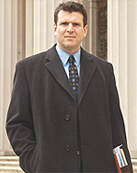Many car accident claims settle, but sometimes the insurance company refuses to pay a fair and reasonable settlement. It is then that settlement negotiations turn into a lawsuit. To start a lawsuit, you must file a complaint with the court and serve the defendant(s) with the complaint. Because of the complex nature of a lawsuit and the strict deadlines the law imposes, you should always seek the help of a car accident lawyer when filing a lawsuit.
Car accident lawsuits and settlement negotiations are complex, especially if more than one defendant shares responsibility for your injuries and losses. A car accident lawyer can help you through the process and take the burden of negotiations and trial prep off your shoulders, allowing you to concentrate on recovering.
Before Filing the Lawsuit
Before you file a lawsuit, you must take several steps, including investigating the case. Because settling is less expensive and faster, many cases do settle. However, the parties to the claim cannot settle without knowing all the facts. Thus, lawyers complete a lot of trial prep before even filing a lawsuit. The basic steps a firm might take before filing a complaint against an at-fault driver include the following:
Investigate the Case
If you contact an attorney soon enough after the accident, the firm has more to investigate, as evidence is most likely still viable. Skid marks and property damages at and near the accident can tell much of what happened. They can help prove your case.
As time goes by, the evidence tends to disappear. The weather and traffic could erode skid marks and other damage to the road. Property owners repair their properties. Police often leave vehicles sitting in an impound yard in the weather, which can deteriorate evidence.
Sometimes, a defendant could inadvertently destroy evidence by repairing her vehicle if she believes that authorities collected all the evidence. Finally, a defendant could purposely destroy evidence by repairing or hiding the vehicle.
Review Medical Records
Part of knowing how much compensation you deserve is knowing the cost of your medical expenses. Your attorney must review your medical records and will sometimes consult with expert medical witnesses to determine a fair and reasonable amount.
Start Collecting Evidence
In addition to the evidence investigators find at the accident scene on or in the vehicles, an experienced attorney collects even more evidence in the form of statements from witnesses and first responders at the location of the accident. At this stage, the attorney could informally question witnesses or formally question them in a deposition. If you have not provided the police report to the firm, the attorney will request a copy of the police report.
Creating the Initial Settlement Contact

Once the attorney has all the information he needs, he drafts a demand letter outlining the facts and your injuries. It also contains an amount you and your attorney agree is a fair and reasonable car accident settlement. The demand letter also gives the defendant a certain number of days to respond.
The defendant—usually the at-fault driver’s insurance company can:
- Deny the claim, in which case, you would file a lawsuit.
- Offer a lower amount that the defendant believes is fair and reasonable. If you do not accept, you can counter. This “back and forth” could happen several times if you allow it. If you don’t believe the defendant will come to a fair and reasonable settlement, you can exit settlement negotiations and file a lawsuit.
- Accept the facts and the amount in your demand letter and move to settle.
Filing a Car Accident Lawsuit
Once you determine that the insurance company will not settle with a fair and reasonable offer, you might decide to litigate.
In litigation:
- Your lawyer files a summons and complaint with the clerk of court.
- A process server locates and serves the defendant with a copy of the complaint.
- The defendant has a specific number of days to respond.
- The defendant files an answer which admits or denies each of the allegations in the complaint. The defendant might file a counterpetition to sue you if he thinks you are at fault for the accident. Additionally, the defendant might file a cross-complaint against a third party if he believes someone else caused the accident.
Once the defendant responds to the lawsuit, discovery starts. Both sides exchange documents, including police reports, car accident report, medical records, receipts for expenses related to the accident, and more. The attorneys may depose question under oath the plaintiff (you), the defendant (the alleged at-fault driver), and witnesses.
The attorneys may also send interrogatories. They are written questions that the receiving party must respond to. Since you must notarize interrogatories, they are also under oath.
Once the discovery process finishes, the attorneys may recommend mediation to see if a third party can help you settle the case. If mediation fails, the case goes to trial.
Before trial, most attorneys create a trial notebook with the evidence from the investigation and the documents received from the defendant. The attorney works with you to come up with a trial strategy.
Bench Trial vs. Jury Trial
Most car accident trials are jury trials. A jury of your peers listens to the case presented by the attorneys. At a bench trial, only the judge hears both sides and makes a decision.
If you have a jury trial, the court (judge) instructs the jury in determining negligence. The jury reviews everything in the trial and determines if the defendant’s actions or inactions were negligent.
After the Trial
If the jury rules in your favor and sets the amount, one of the attorneys usually the attorney for the losing party since that is the party that generally pays attorneys’ fees drafts a final judgment and forwards it to the other attorney for review. Once the attorneys agree that the final decision reflects the court’s ruling, they forward it to the court so the judge can execute it (sign it and file it in the court file).
The Process When You Win a Settlement or a Trial Award
The process after winning a trial or settlement is the same after this point. The defendant’s insurance company processes the settlement agreement or final judgment and cuts a check to your attorney, who deposits it into an escrow account. This process could take one to two weeks.
It usually takes at least 14 days for the check to clear the bank. Your attorney cannot take the following steps until the check clears the bank.
Once the check clears, your attorney:
- Pays any outstanding medical expenses you might owe. From the time you settle or win a trial award to when your attorney processes the check, you should submit any new medical expenses you have not previously submitted.
- Reimburse your health insurance and auto insurance companies if you use them to cover medical expenses. Some auto insurance companies will also pay for loss of income.
- Deducts his attorney’s fees and costs according to the contingency agreement you signed when you retained the firm.
- Forwards you a check for the balance. You can deposit the check and use it as you see fit.
Depending on how long the court takes to sign the final judgment and the insurance company to process it, the final steps could take up to two months.
Car Accident Injuries
Even if you have injuries that should heal in less than three or four months, you must recover the compensation you deserve. Doctors are expensive and if your insurance doesn’t cover certain expenses, doctors still expect payment.
If you have injuries that cause long-term or permanent disabilities, you could require medical care for the rest of your life. Many insurance companies drop their clients if they use too many benefits. Recovering the compensation you deserve not some pittance an insurance company wants to pay you ensures you can continue receiving the care you need.
Car accident injuries include:
- Bumps, bruises, scratches, cuts, scrapes, and puncture wounds.
- Strains and sprains.
- Pulled and torn muscles and other soft tissue injuries.
- Simple and compound fractures.
- Crushed bones and crush injuries.
- Face and eye injuries.
- Traumatic brain injuries.
- Head, neck, and shoulder injuries.
- Internal injuries.
- Chemical and thermal burns.
- Road rash.
- Back and spinal cord injuries.
You could also sustain secondary injuries, such as an infection that develops in an open wound. Whether the wound is from the accident or surgery to repair an accident injury, the defendant is responsible for the medical care for infections and other secondary injuries, as you wouldn’t have them if not for the defendant’s actions or inactions.
Accident injuries could exacerbate existing injuries and illnesses. If so, the defendant is responsible for the extra medical care and other damages caused. As with secondary injuries, existing conditions and injuries would not be worse if not for the defendant’s actions or inactions.
Recoverable Damages
When settling or litigating a car accident case, you are trying to recover enough compensation to cover your medical expenses. However, you might also have other losses. While money doesn’t erase long-term or permanent injuries or bring back a loved one, it significantly reduces the financial burden caused by the accident.
After a car accident, you could recover compensatory damages in the form of economic damages and non-economic damages.
Economic Damages
Sometimes referred to as special damages, economic damages have a monetary value.
Most people injured in a car accident recover economic damages, including:
- Medical expenses include doctors’ appointments, surgeries, follow-up appointments, prescriptions, prescribed over-the-counter drugs, and ambulatory aids.
- Home health care.
- Cognitive therapy appointments.
- Physical therapy appointments.
- Occupational therapy appointments.
- Psychological therapy appointments.
- Nursing home or rehabilitative home care.
- Loss of income.
- Loss of future earning capacity. If your injuries caused long-term or permanent disabilities that only allow you to work part-time or full-time at a job that pays less than your previous job, you could recover loss of partial future earning capacity. You can typically collect loss of earning capacity through the time you normally retire.
- Replacement or repair of personal property destroyed or damaged in the accident, including your vehicle and anything of value in the vehicle.
- Death-related expenses, including burial expenses, funeral expenses, cremation expenses, certain probate court fees, and probate attorney’s fees and costs.
Non-Economic Damages
Sometimes referred to as general damages, non-economic damages do not have a monetary value. However, the court orders the defendant to pay them to make you financially whole again. Not everyone can recover non-economic damages.
Generally, you must have long-term or permanent injuries, or you must have lost a loved one. While insurance companies have their own definitions of long-term or permanent injuries, the Social Security Administration defines them as injuries that result in death or disabilities that last longer than 12 months.
Non-economic damages include:

- Pain and suffering, including emotional distress.
- Loss of quality of life if you have to make life-long changes, such as taking prescription drugs or using ambulatory aids.
- Loss of consortium if you can no longer enjoy a physical relationship with your spouse.
- Loss of companionship if you can no longer enjoy time with your family or attend family activities and events.
- Loss of use of a bodily function, such as your eyesight or bladder.
- Loss of use of a body part, such as a leg or a finger.
- Excessive scarring or disfigurement.
- Amputation of a digit or limb.
- Inconvenience if you have to hire someone to do the chores you usually do, including but not limited to lawn maintenance, grocery shopping, home repair and maintenance, and house cleaning.
If you suffered injuries or lost a loved one in a motor vehicle wreck, contact a personal injury lawyer in Bronx for a free case evaluation as soon as possible.



